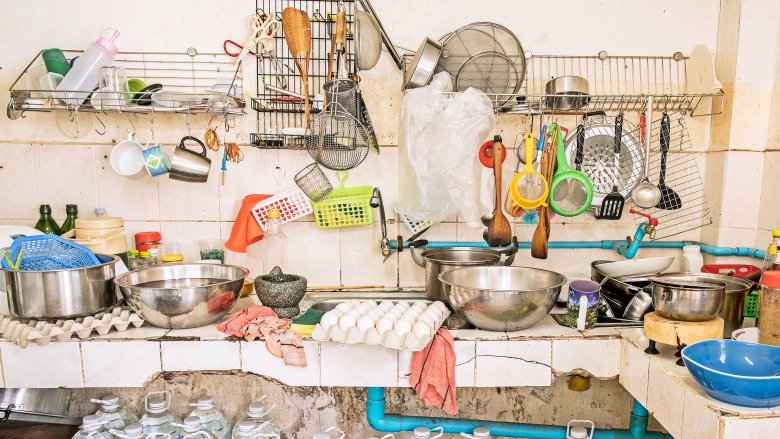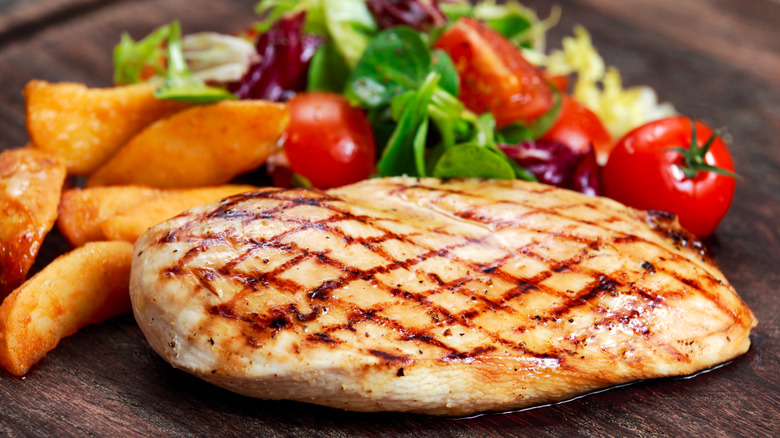While modern life seems to be built on disposability, there are a surprising number of things we re-use long
past their expiration date. Here are 4 things in your kitchen you need to throw away now. And we’ll explain
why you should toss them in the trash as soon as possible.
Your Sponges
Your sponges are used to clean up everything from food spilled on the counter to the dishes you just rinsed
in soapy water. Yet we rarely clean the sponges as thoroughly as they should be. In fact, many people nuke
them in the microwave and think this cleans them (it doesn’t). Soaking the sponge in bleach water for half an
hour. However, you’ll then have to rinse it to get the bleach out before you use it again. Boiling it for several
minutes will do a good job of sterilizing it, though it won’t be as effective as you think because of all the
holes in the sponge. This is why your sponges should be thrown out and the new ones replaced every two to
four weeks. Or use a washcloth instead, as long as you wash that after each use.
Uncooked Leftovers
Do you remember when you put those leftovers in the fridge? If the answer is no, throw them out. While
refrigerators extend how long food can be safely kept, leftovers still go bad after three to four days. And that
is assuming you moved it straight from the dinner table to the refrigerator to chill it as soon as possible. If
the food sat out at room temperature for a long period of time, it probably went bad much faster than that.
Don’t assume that reheating the leftovers makes it safe to eat. Five minutes in the microwave doesn’t kill
bacteria the way baking or boiling raw food will. Next time, freeze the leftovers you’re interested in
preserving.
Everything Else That’s Been in the Fridge Too Long
You really should start throwing away everything that’s been in the fridge too long. The challenge for many
is knowing when that point has been reached. It isn’t always as obvious as when vegetables in the crisper
have started to wilt or sprout mold. However, vegetables that have changed color, texture and shape should
be the first to go in the trash after you’ve disposed of everything that is obviously rotting.
The lunchmeat in a refrigerator pack may have an expiration date a month away. However, once you open
the seal, it is subject to the same several day safe period as uncooked leftovers.
Don’t forget to check your condiments. Check the expiration dates. Your mustard might last a few weeks
open, but it should always be tossed after the expiration date. Get rid of condiments that have separated, too,
whether it is salad dressing or mayonnaise. If it doesn’t look right, be safe and dispose of it.
Scratched Up Kitchenware
This advice can take several forms. For example, your scratched up cutting board should be tossed. You
really can’t clean the food residue out of those deep grooves, and the jets of hot water in the dishwasher
can’t effectively clean them, either. Get rid of your scratched up kitchen tools, too, for the same reason. This
means getting rid of scratched up wooden spoons and rolling pins.
You should get rid of your badly scratched nonstick pans, too. A deeply scratched nonstick pan isn’t a
nonstick pan anymore. You’ll now need to start fighting that one problematic sticky spot. Or you can get a
new nonstick pan. Deep grooves can pose the same health hazard as a scratched up cutting board. They also
pose an additional health risk. When a Teflon coated pan’s nonstick surface is cut up, it can release toxic
fumes when you’re cooking that are otherwise contained by the nonstick surface.



